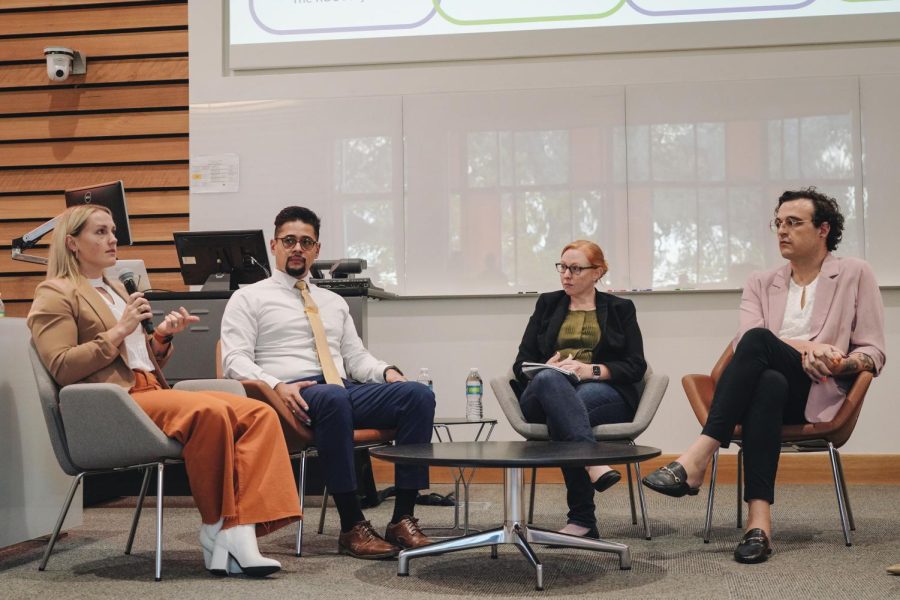UT research project seeks to reduce suicide among LGBTQ+ young adults
September 30, 2022
CW: mentions of suicide
A new study from UT researchers aims to reduce suicide among LGBTQ+ young adults, after a 2018 survey found that 40% of LGBTQ+ young adults in Central Texas had considered suicide in the past week, said Phillip Schnarrs, one of the project’s lead researchers.
“When we think about brief suicide prevention interventions, there are none that have existed for LGBTQ+ young adults, or LGBTQ(+) folks in general, which is a little bit astonishing,” Schnarrs said.
Researchers at Dell Medical School, Steve Hicks School of Social Work, UT Southwestern and Texas Health Institute partnered for the Reach Out and Connect Project, along with health care clinic partners and an engagement team to recruit young adult participants to the study.
Schnarrs, a population health associate professor, said the purpose of the project is to adapt existing suicide prevention interventions to be more effective for 18-24 year olds in the LGBTQ+ community.
Schnarrs said the researchers completed the first step of the project, which was having conversations with LGBTQ+ young adults, physicians and mental health providers. The next step, Schnarrs said, will be to compare two interventions the researchers have modified using what they learned from the conversations by testing them in clinics with patients recruited to the study.
In a town hall for the project at Dell Medical School on Saturday, Schnarrs identified exposure to discrimination and mistreatment, fears of rejection and a lack of social support and feelings of belongingness as some underlying reasons for the high rate of suicide and suicidal ideation in LGBTQ+ young adults.
Schnarrs said most suicide prevention activities occur after a suicide attempt has been made, but the ROC Project is interested in moving suicide prevention from crisis management into primary care settings, which includes regular doctors and sexual wellness clinics.
“We’re losing so many queer youth because they don’t know the resources are there and they don’t know how to find them,” said Eduardo González, an administrator at the Kind Clinic in South Austin, a sexual wellness clinic and a recruitment site for the ROC Project.
Izzy Dudley, a biology freshman and member of the LGBTQ+ community, said an intervention with their primary care doctor, where they could have recieved concrete tools and advice before their suicide attempt last year would have made a significant difference.
“If I was able to have more comfortable conversations, more in-depth conversations with my health care provider, I feel like I wouldn’t have been brought to that level because that moment was a build up,” Dudley said.
González spoke on a panel at the town hall that discussed the obstacles LGBTQ+ young adults face in health care, including discrimination, loss of autonomy and misuse of pronouns and names.
At the town hall, they also discussed how health care providers can destigmatize conversations about suicide so that primary care doctors can intervene before a patient reaches a crisis.
“I’m hoping what comes out of this (project) is a much more concrete standard of care for (a way) to address suicidality in young people that doesn’t make them feel even more alienated or retraumatized by the experience,” said Alex Yoon, a graphic designer with the Transgender Education Network of Texas and a member of the ROC youth advisory board.
The ROC Project is not only intended to identify the most effective suicide intervention, Schnarrs said, but also to implement the method into the 36 health care clinics that are partners on the project.
“We have a real opportunity to scale these interventions up quickly across Texas,” Schnarrs said. “That will have a direct impact on the mental health of young LGBTQ(+) folks.”




